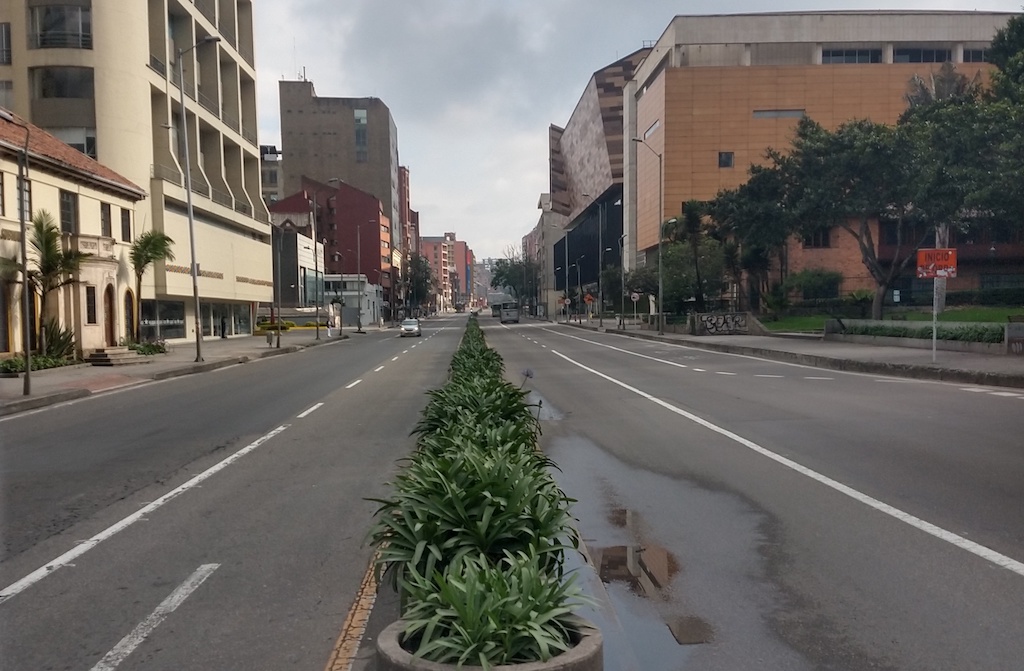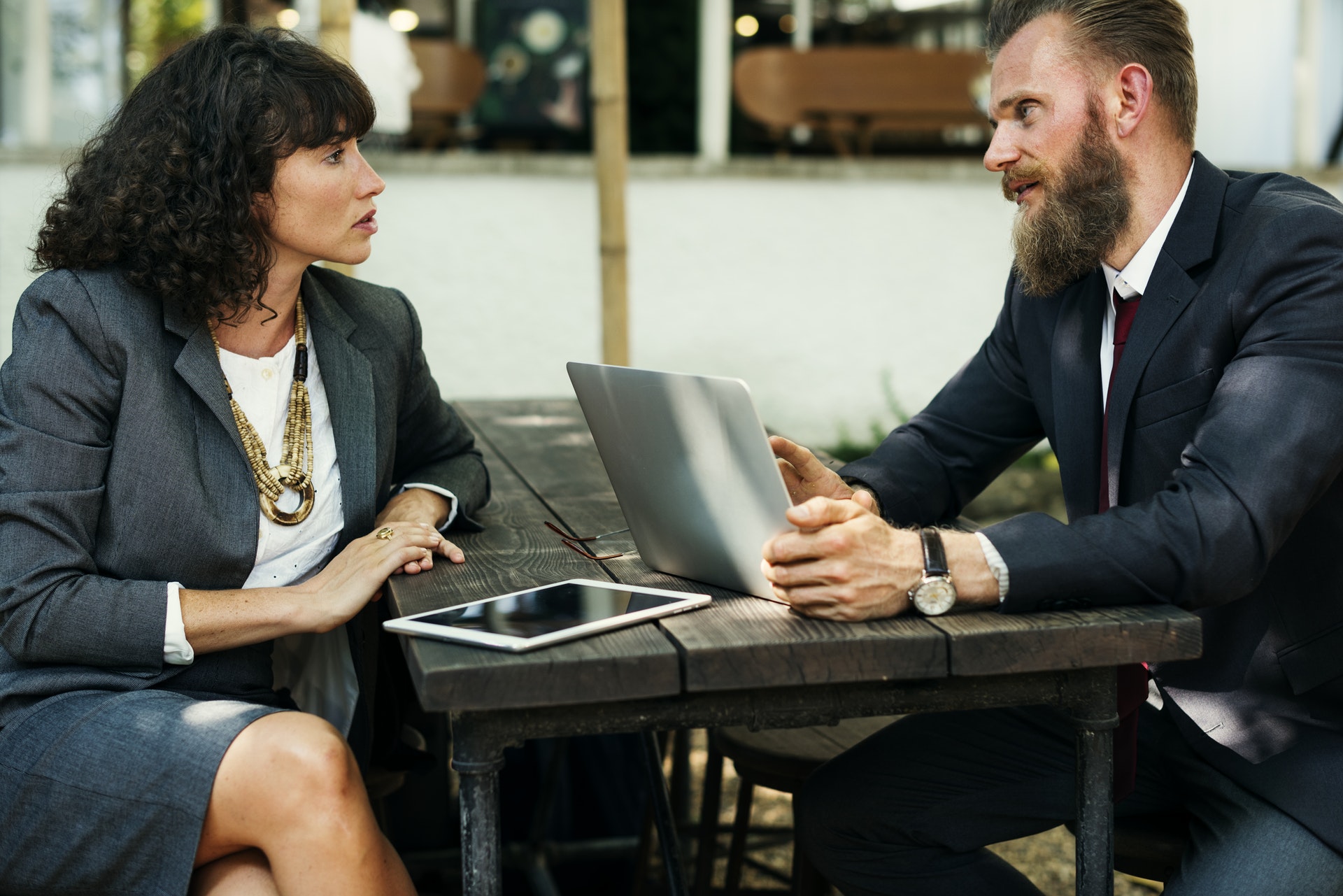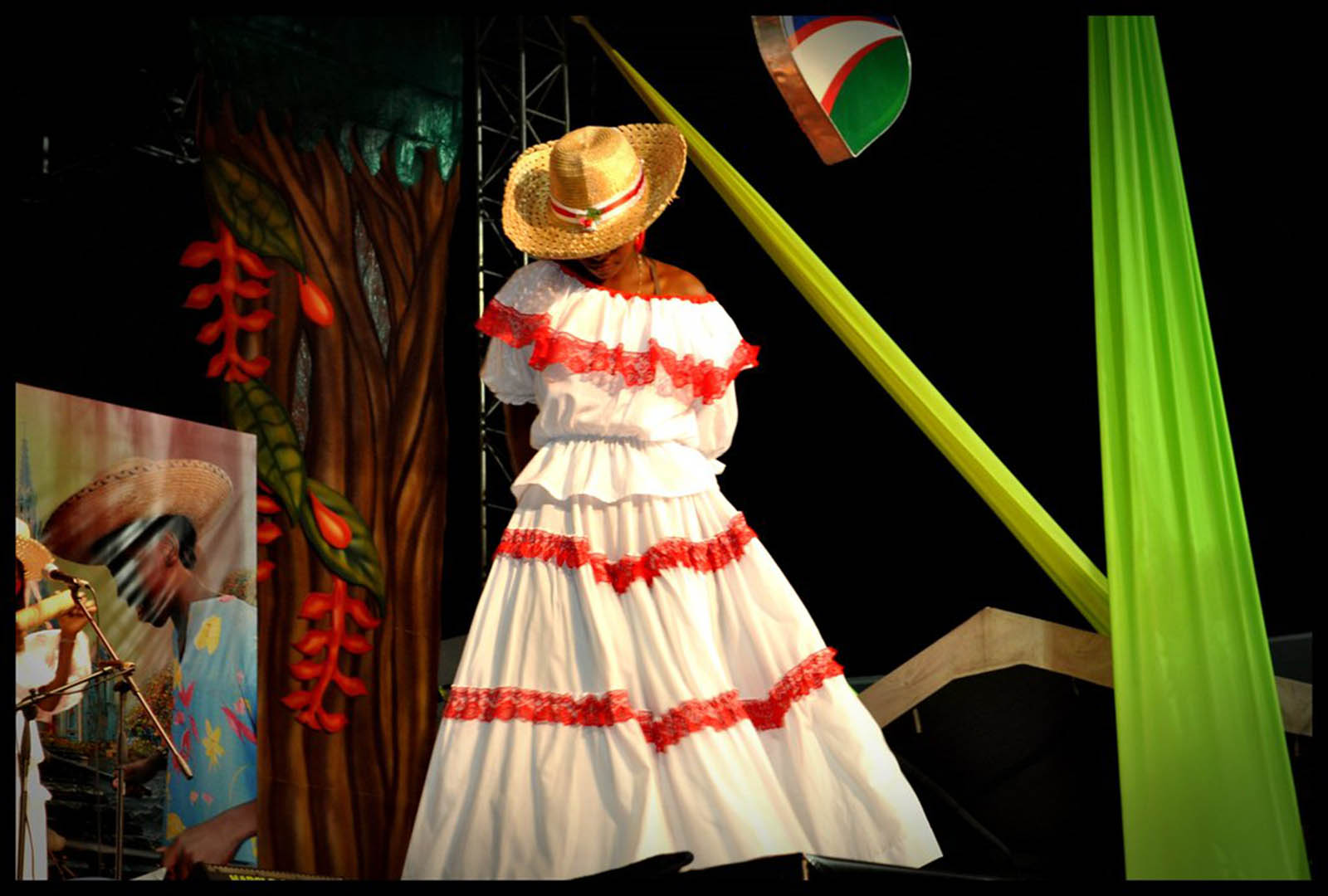Citizens must stay at home until April 13 unless they have a good reason — like needing food or medicine — to be out.

When does it start?
The national quarantine starts on Tuesday, March 24 at 11.59 pm and runs until 11.59 pm on April 13. It could be extended if necessary. Bogotá and nearby areas already under the test shut-down will move directly to the nationwide quarantine with no space in between. This is to prevent mass movement, panic shopping and other activities that could increase the spread of the virus.
I’m stuck outside Bogotá, how can I get back?
If you are within driving distance of Bogotá, the city is allowing cars to re-enter on Monday and Tuesday, following pico y placa rules. Today, Monday 23rd, cars with even ending number plates can drive back into the city. Tomorrow, Tuesday 24th, cars with odd numbers can return. You will need to fill in this form and go straight to your home.
Internal flights will still be running until tomorrow (March 24), so if you live in Bogotá, try to get a flight back as soon as possible. After that all national flights and most long distance bus transport will be stopped.
What are the rules of Colombia’s quarantine? Will it be the same as Bogota’s simulation?
As with Bogotá’s current isolation drill, people will be required to remain at home unless they have a good reason to be out.
However, you can leave home briefly for the following reasons:
- To buy food
- To go to the bank or notary office
- To walk pets
Normally only one person per household will be allowed out, so don’t go in groups. What we’ve seen in the past few days in Bogotá is that as long as you are not flagrantly flouting the rules, the police are being reasonable in enforcing them.
Home deliveries (domicilios) of food, goods and medicine will continue to operate. Restaurants are only allowed to provide take-away food, but hotels can serve residential guests. Messenger services and journalists are also exempt from travel restrictions, as are medical personnel and key workers in essential services such as gas, water and electricity. You can also go out to provide or receive medical treatment, which includes taking your pet to the vet, or to care for an elderly, disabled or sick person.
Most food shops, including small local grocers, can open, as well as funeral services. Call centres and — importantly — internet repair people will continue to be able to work. Rubbish collection will follow its normal routine, unless the building where you reside advises otherwise.
Read all our coverage on the coronavirus in Colombia.
Public transport and taxis will operate but only for exempt workers and exceptional circumstances, such medical or veterinary. If you are going shopping you will be expected to go on foot to somewhere near.
As we said a few days ago, if your house is burning down or the city is struck by an earthquake, nobody expects you to stay inside.
Is there ley seca? Will I still be able to buy alcohol?
Don’t panic. There is no ley seca at a national level and the sale of alcohol will continue as normal in supermarkets and by domicilio. The only rules about alcohol are that you can’t drink it in public spaces or pubs. Which won’t be so difficult since you can’t go out.
The decree overturns any rules brought in individual departments or cities in recent days. As of March 24, the sale of alcohol will not be prohibited anywhere in the country.
Can I still walk my dog?
Yes. As per the current rules, one person per household is allowed out for dog walking. The decree doesn’t mention the 20-minute limit that was introduced for the isolation drill.
How safe is it to be out and about?
Most coronavirus cases in Colombia came from people arriving from overseas, or are friends and family of these ‘import’ cases. For this reason, many people here see the coronavirus outbreak as an outside threat, and some foreigners here have reported xenophobic comments. These are rare events, but to be sure, now is a good time to keep stick to the rules and keep a low profile.
If you are visiting Colombia, make sure you carry a photocopy of your passport and entry stamp when outside, as police may ask to check how long you have been in the country. Residents should carry their cedula ID card.
At present streets are very empty and we have heard reports of attempted robberies. You are best to venture out in daylight hours at peak times when more people are out shopping.
What about flights?
The Ministry of Transport has confirmed a total suspension of incoming international flights, including final destination and connecting flights, on Colombian soil.
That means that for 30 days from 11.59 pm on Sunday, March 22 no international flights will be arriving in the country. This may be shortened or extended as the situation develops.
Various embassies are working round the clock to help their citizens get home. For example, the Dutch embassy have agreed with the Colombian government that two KLM-AirFrance flights can leave for Amsterdam on March 24 and March 26.
The Swiss embassy have a special flight leaving on March 24 and the British embassy are also trying to organise a flight with Avianca.
Outside of those specially-agreed flights, the only people who will be allowed entry are: flight crew, technical and administrative staff, and those associated with airlines. They must abide by strict and mandatory preventative quarantine measures with a quarantine of 14 days.
The airlines are responsible for informing their customers about flight suspensions due to the conditions of the decree; they are also responsible for providing customers with official sanitary recommendations to prevent the spread of COVID-19.
Importantly for international tourists, anyone who arrived in the country since the start of the outbreak must still self-quarantine for 14 days. So far more than 60 foreigners and 2 Colombians have been sanctioned for not following the quarantine. President Duque emphasized that those found to be noncompliant will face severe legal consequences.
What about my visa?
We got some visa questions answered by Migración Colombia a few days ago, and many of those answers still stand.
You can apply to extend your permiso de ingreso (which many see as a tourist visa), on the Migración Colombia website. The Cancillería says all cases are being processed online and the office in Bogotá is shut at the moment.
What happens if I break the rules?
According to the government’s decree, those who break the rules will be sanctioned under article 368 of the penal code. What that means in non-legalise is that you could be fined up to a million pesos and in extreme cases, sent to jail.
The penal code says those violating measures adopted to prevent the spread of a pandemic could face prison sentences of four to eight years. Given what’s been happening in Colombia’s prisons recently, that’s not somewhere you want to be right now.
What are other ministries doing?
The National Planning Department says that public audiences will be held electronically where possible, and says that the Ministry of External Relations Legal Fund, has the authority to use international administrative partnerships and contracts that lead to the acquisition of goods and services to mitigate the pandemic.
It will implement emergency hiring for contract jobs or executing construction in response to the public health emergency. Other public hiring processes will be suspended.
The Ministry of Housing has promised immediate reinstallation or reconnection of aqueduct services to those whose service was previously cut or suspended. It announced a temporary suspension of fee increases for at-home services for aqueduct or sewage-related utilities.
It says that each city or town needs to provide its citizens with drinkable water during this public health emergency.





